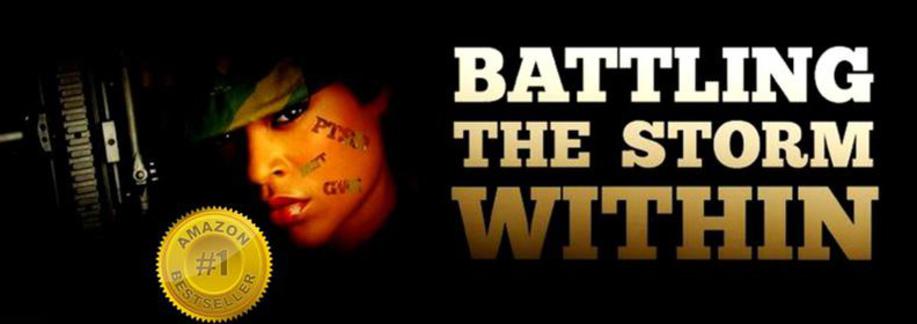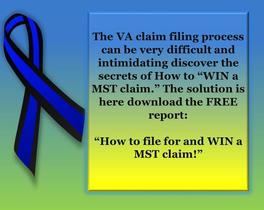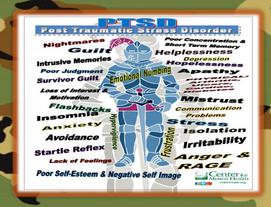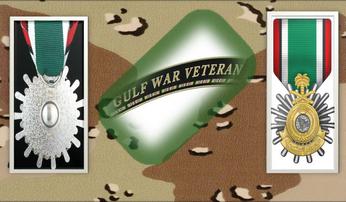"I developed coping mechanisms such as denying that it was happening, I wrote it off as it was just how men act that didn’t have access to regular sex with their partners. I removed the responsibility off of them unto myself as I must have attracted this. I became very conscious of what I wore and tried to keep myself covered even in the extremely hot weather conditions and temperatures of 110' degrees in the Saudi Arabian Desert. I tried to rationalize it and make up excuses saying things to myself like, well all men must have a lack of sexual control especially when there was such a lack of access to women.. I didn’t want to deal with these offensive emotional incidents, I tried to deal with it in a logical matter. Because I felt like what could I really do to stop it, I had no power. So rationalized and excused
many of the behaviors of the harassers. I often used humor as a way of drawing attention away from myself in order to reduce the anxious feeling of being sexually harassed and sexually assaulted."
Sgt. Stephanie J. Shannon - "Battling the Storm Within"
What is Military Sexual Trauma (MST)?
Military sexual trauma, or MST, is the term used by Veterans Administration to refer to experiences of sexual assault or repeated, threatening sexual harassment that a Veteran experienced during his or her military service. The definition used by the VA comes from Federal law (Title 38 U.S. Code 1720D) and is “psychological trauma, which in the judgment of a VA mental health professional, resulted from a physical assault of a sexual nature, battery of a sexual nature, or sexual harassment which occurred while the Veteran was serving on active duty or active duty for training.” Sexual harassment is further defined as "repeated, unsolicited verbal or physical contact of a sexual nature which is threatening in character.”
More concretely, MST includes any sexual activity where a servicemember is involved against his or her will -- he or she may have been pressured into sexual activities (for example, with threats of negative consequences for refusing to be sexually cooperative or with implied better treatment in exchange for sex), may have been unable to consent to sexual activities (for example, when intoxicated), or may have been physically forced into sexual activities. Other experiences that fall into the category of MST include unwanted sexual touching or grabbing; threatening, offensive remarks about a person's body or sexual activities; and threatening and unwelcome sexual advances. The identity or characteristics of the perpetrator, whether the Service member was on or off duty at the time, and whether he or she was on or off base at the time do not matter. If these experiences occurred while an individual was on active duty or active duty for training, they are considered by Veterans Administration to be MST.
According to the Pentagon 38 men in the military are sexually assaulted daily. MST is a epidemic that affects 1 in 4 women and 1 in 100 men unfortunately 1 in 3 women in the military are sexually assaulted and 1 out 7 don't report it and 1 out of 10 that report it actually go to trial. Military Sexual Trauma is an experience, not a diagnosis or a mental health condition. Although the reactions men and women have to MST are similar in some ways, they may also struggle with different issues. Race/ethnicity, religion, sexual orientation, and other cultural variables can also affect the impact of MST.
Some of the experiences both female and male survivors of MST may have include: strong emotions: feeling depressed; having intense, sudden emotional reactions to things; feeling angry or irritable all the time, feelings of numbness: feeling emotionally ‘flat’; difficulty experiencing emotions like love or happiness, trouble sleeping: disturbing nightmares.
Difficulties with attention, concentration, and memory: trouble staying focused; frequently finding their mind wandering; having a hard time remembering things. Problems with alcohol or other legal and illegal drugs. Difficulty with things that remind them of their experiences of sexual trauma: feeling on edge; difficulty feeling safe; going out of their way to avoid reminders of their experiences. Difficulties in relationships: feeling isolated or disconnected from others; abusive relationships; trouble with employers or authority figures; difficulty trusting others. Physical health problems: sexual difficulties; chronic pain; weight or eating problems and even gastrointestinal problems. Although posttraumatic stress disorder (PTSD) is commonly associated with MST, it is not the only diagnosis that can result from MST. Fortunately, people can and do recover from experiences of trauma, and Veteran Administration has effective services to help Veterans do this. However, some service men and woman do not experience recovery some experience death and injustice. Have you heard the story about PFC Lavena Johnson? Congress Woman Kirsten Gillibrand has led as the congressional voice for the Military Justice Improvement Act MJIA that is looking to end the epidemic of sexual assault in the military,
"Often after a combat or sexual trauma you see the world as an unsafe place to live which can keep your body in a state of constantly alert and ready for a possible attack, this was my mode of operating. My military trainings and combat experiences as an 88M, transportation specialist was very rigorious and demanding. I had thoughts of being ambushed while in a convoy at any moment and being taken captive by enemy forces, even though I was trained well to respond there was nothing like it when I was living the moment. Reactions to some danger can cause you to operate in a freeze mode, like a deer in the head lights or fight mode like a militant warrior. While on guard duty which was considered one of the most important duties at my unit's home base, the responsibility of staying awake for 12 hours or more while sitting in a tower or a bunker just watching for the moves, sounds or things that may be generated by your enemy. The threat of biological and chemical warfare was great due to the scud missiles that were launched towards us from Saddam Hussein."
Sgt. Stephanie J. Shannon "Battling the Storm Within"
What is Post Traumatic Stress Disorder (PTSD)?
PTSD, or Posttraumatic Stress Disorder, is a psychiatric disorder that can occur following the experience or witnessing of a life-threatening events such as military combat, natural disasters, terrorist incidents, serious accidents, or physical or sexual assault in adult or childhood. Survivors of trauma can experience a return to normal given a little time. However, some people will have stress reactions that do not go away on their own, or may even get worse over time especially if there is no intervention. These individuals may develop PTSD. People who suffer from PTSD often relive the experience through nightmares and flashbacks, have difficulty sleeping, and feel detached or estranged, and these symptoms can be severe enough and last long enough to significantly impair the person’s daily life.
People with PTSD experience three different kinds of symptoms. The first set of symptoms involves reliving the trauma in some way such as becoming upset when confronted with a traumatic reminder or thinking about the trauma when you are trying to do something else. The second set of symptoms involves either staying away from places or people that remind you of the trauma, isolating from other people, or feeling numb. The third set of symptoms includes things such as feeling on guard, irritable, or startling easily.
Post Traumatic Stress Disorder is marked by clear biological changes as well as psychological symptoms. PTSD is complicated by the fact that people with PTSD often may develop additional disorders such as depression, substance abuse, problems of memory and cognition, and other problems of physical and mental health. The disorder is also associated with impairment of the person’s ability to function in social or family life, including occupational instability, marital problems, divorce or separation, family discord, difficulties in parenting, unemployment, housing stability, spouse abuse, domestic violence, interpersonal relationships and increased incidents of violence.
There are many treatment options available for PTSD, understanding it and learning how to manage it is key to overcoming it. Working with a qualified doctor or counselor on what types of treatment that will work best for you is the first and best step to take when dealing with your PTSD symptoms.
"Even though I was just taking things day by day, I felt sick and many of my fellow comrades did also. I knew something was different, my body started to show these symptoms of the now known medical condition called the Gulf War Illness. I was very tired and felt fatigued, I had pains and aches in my muscles and all over my body, and I had those God awful headaches, and swollen glands too. I also found myself not feeling clear headed and somewhat dizzy at times, I had small red rashes appear on my arms and I digestive problems. My respiratory system seemed to stay irritated, all we got for the remedy was over the counter meds and a pill for the pain. Our medical unit and capabilities were very primitive too, we saw the doctor in a tent that was set up in the desert. I never felt this sick ever before in my life, it was weird to me because I didn’t even know how to deal with this. Many soldiers were having skin break outs and complained about many other health concerns."
Stephanie J. Shannon "Battling the Storm Within"
What is the Gulf War Illness (GWI) is a chronic multisymptom disorder affecting returning military veterans and civilian workers of the Gulf War since August 2, 1990. A wide range of acute and chronic symptoms have been linked to it, the Gulf War Veterans’ Medically Unexplained Illnesses is a prominent condition affecting Gulf War Veterans that has a cluster of medically unexplained chronic symptoms that can include fatigue, headaches, joint pain, muscle pain, cognitive problems, rashes, digestive problems, indigestion, insomnia, dizziness, respiratory disorders, and memory problems. The VA refers to these illnesses as "chronic multi-symptom illness" and "undiagnosed illnesses." The VA prefers not to use the term “Gulf War Syndrome” when referring to medically unexplained symptoms reported by Gulf War Veterans. Why? Because symptoms vary widely approximately 250,000 of the 700,000 U.S. veterans who served in the 1991 Gulf War are afflicted with enduring chronic multi-symptom illness, a condition with serious consequences. From 1995 to 2005, the health of combat veterans worsened in comparison with nondeployed veterans, with the onset of more new chronic diseases, functional impairment, repeated clinic visits and hospitalizations, chronic fatigue syndrome-like illness, posttraumatic stress disorder, and greater persistence of adverse health incidents. According to a report by the Iraq and Afghanistan Veterans of America, veterans of Iraq and Afghanistan may also suffer from the syndrome. Suggested causes have included depleted uranium, sarin gas, smoke from burning oil wells, vaccinations, combat stress and psychological factors.
The VA reported a total of 700,000 soldiers were deployed to the Persian Gulf region during the 1991 war, 148 battle deaths during Desert Storm, of the 700,000 veterans who served during the 1991 war, 250,000 the Gulf War illness have complained about the symptoms of the GWI. As reported by the Iraq and Afghanistan Veterans of America the Gulf War veterans of the more current wars in Iraq and Afghanistan have the symptoms also. The department of veteran affairs have reported that 80,000 Gulf war veterans have died off the battlefield since the Desert Storm / Gulf War I.
Gulf War illness is recognized as a presumed service connected benefits but 80% of claims are denied that is only one in five applications that are approved, according to data obtained by Military Times. VA benefits and care are denied for the majority of Gulf War veterans.
53 Veterans die every day waiting on VA benefits, the VA released the numbers after repeated requests from the Baltimore Sun, in a published an article Jan. 27, 2013. Many of my fellow veterans believe that the VA intentionally delays, deny until you die. There is hopelessness and distraught feelings while waiting on your VA claim to be approved which often causes despair that you are up against an uncaring, unfeeling bureaucracy. It can be overwhelming and causes many veterans to give up and even take their own lives.
The VA system has a toxic environment much like the Gulf War battlefield was, it needs to be reformed and be held accountable and it's integrity restored. Medial science needs to be directed towards finding treatments and preventing illnesses which continues to be denied and not compensated for. Much like the Agent Orange Epidemic that Vietnam veterans had to endure. All the evidence is present however there seems to be a level of manipulation present that keep claims processing and cost benefits down.
The VA system has a toxic environment much like the Gulf War battlefield was, it needs to be reformed, be held accountable and it's integrity restored. Medial science needs to be directed towards finding treatments and preventing illness which continues to be denied that it exists. Much like the Agent Orange Epidemic that Vietnam veterans had to endure. All the evidence is present however their seems to be a level of manipulation present that keep claims processing down and cost benefits down.
National Gulf War Resource Center (NGWRC) offers help to those afflicted by Gulf War Illness can be challenging there are other related illnesses; medically unexplained Illesses, popularly called "Gulf War Syndrome" and infectious diseases, the VA provides benefits, registry exam and health care services to veterans that qualify, there are Gulf War exposures; oil well fires, pesticides, vaccinations and more and there is provider resources; diagnosis & treatment, patient education and research studies available.
This site serves not only to offer lessons of how to reclaim your life after PTSD, GWI, and MST, but also a call for change in legislation, government policies, the VA system, and military practices
and procedures that impact the veteran population and their families.
Enter your information below and download a free report to get the tools on How to Win a MST Claim
Enter your information below and download a free report to get the tools on How to Win a Gulf War Illness Claim
Enter your information below and download a free report to get the tools on How to Win a PTSD Claim
Military Sexual Trauma Awareness and Solutions Video
Gulf War Illness Awareness and SolutionsVideo
Post Traumatic Stress Disorder Awareness and Solutions Video



